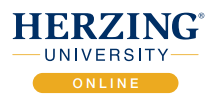How to Become a Healthcare Documentation Specialist in Kentucky

Want personalized recommendations?
Let's match you to the right program

What is a Healthcare Documentation Specialist?
A Healthcare Documentation Specialist, also known as a Medical Transcriptionist, is a professional responsible for transcribing and editing medical reports, records, and other healthcare-related documents. They play a crucial role in ensuring accurate and complete medical documentation.
The responsibilities of a Healthcare Documentation Specialist include:
- Listening to recorded dictations by healthcare professionals
- Transcribing and editing dictations into written reports
- Reviewing and ensuring the accuracy and clarity of medical documents
- Following industry-specific guidelines and standards
- Collaborating with healthcare professionals to clarify information
Article continues after recommendations
Recommended for you
Where does a Healthcare Documentation Specialist work?
Healthcare Documentation Specialists have the flexibility to work in various healthcare settings. Some of the common workplaces for these professionals include:
- Hospitals and clinics
- Medical transcription companies
- Nursing homes and long-term care facilities
- Insurance companies
- Government agencies
- Academic institutions
What are the requirements to become a Healthcare Documentation Specialist in Kentucky?
To become a Healthcare Documentation Specialist in Kentucky, you need to meet certain education and legal requirements. These include:
-
Education: Most employers prefer candidates with a postsecondary certificate or associate degree in Medical Transcription or a related field. These programs provide training in medical terminology, transcription techniques, and relevant software.
-
Legal Requirements: In Kentucky, Healthcare Documentation Specialists are not required to obtain a specific license or certification. However, many employers prefer certified professionals as it demonstrates their competency and commitment to the field. The Association for Healthcare Documentation Integrity (AHDI) offers the Registered Healthcare Documentation Specialist (RHDS) certification, which is widely recognized in the industry.
Where can I find Healthcare Documentation Specialist classes in Kentucky?
If you're interested in pursuing a career as a Healthcare Documentation Specialist in Kentucky, Dreambound is the largest platform to find and compare vocational training programs. Dreambound offers a comprehensive Healthcare Documentation Specialist training program in Louisville-Jefferson County, KY. You can find more information and enroll in the program here.
Dreambound provides a user-friendly interface to search for classes near your location. By using their platform, you can easily find and compare different training programs, read reviews, and make an informed decision about your education.
How do I get my Healthcare Documentation Specialist certification?
If you are interested in pursuing a career as a Healthcare Documentation Specialist, obtaining the necessary certification is a crucial step. This certification not only validates your skills and knowledge in the field, but it also opens up more job opportunities and increases your earning potential.
To get your Healthcare Documentation Specialist certification, you will need to follow a few steps:
-
Education: First and foremost, you will need to have a high school diploma or equivalent. While a college degree is not always required, it can certainly be beneficial and may be preferred by some employers. Additionally, having a background in medical terminology, anatomy, and physiology can be advantageous.
-
Training Program: Next, you will need to complete a training program specifically designed for Healthcare Documentation Specialists. These programs are often offered by vocational schools, community colleges, or online institutions. The duration of the program can vary, but it typically ranges from 6 months to 2 years. During the program, you will learn about medical transcription, healthcare documentation guidelines, and related topics.
-
Practical Experience: After completing the training program, it is important to gain practical experience in the field. Some training programs may include an internship or externship component, which can provide you with hands-on experience. If your program does not offer this, you can consider volunteering or finding a part-time job in a healthcare setting to gain experience.
-
Certification Exam: Once you feel confident in your knowledge and skills, you can take the certification exam. The leading organization that offers certification for Healthcare Documentation Specialists is the Association for Healthcare Documentation Integrity (AHDI). Their certification is called the Certified Healthcare Documentation Specialist (CHDS) credential. The exam consists of multiple-choice questions and covers various topics related to healthcare documentation.
-
Continuing Education: After obtaining your certification, it is important to stay up-to-date with the latest industry trends and guidelines. This can be achieved through continuing education courses, attending conferences, or joining professional organizations. AHDI offers various resources and educational opportunities for certified Healthcare Documentation Specialists.
It is important to note that the requirements for certification may vary depending on your location and the organization you choose to certify with. It is recommended to research and understand the specific requirements of the certification program you are interested in.
Get courses selected just for you
Try our powerful search engine
Article continues after recommendations
How do I get a job as a Healthcare Documentation Specialist?
Once you have obtained your Healthcare Documentation Specialist certification, you can start searching for job opportunities in the field. Here are some steps you can follow to increase your chances of landing a job as a Healthcare Documentation Specialist:
-
Resume and Cover Letter: Create a professional resume and cover letter that highlight your certification, education, and any relevant experience you have. Be sure to tailor your resume to each job application and emphasize your skills and achievements as they relate to the position.
-
Job Search: Start your job search by exploring online job boards, professional networking platforms, and healthcare organizations' websites. Some popular job boards that frequently list Healthcare Documentation Specialist positions include Indeed, LinkedIn, and Glassdoor. Additionally, consider reaching out to local healthcare facilities directly to inquire about job openings.
-
Networking: Networking can be a valuable tool in finding job opportunities. Connect with professionals in the healthcare industry, join relevant online communities, and attend industry events or conferences. By building relationships and making connections, you may come across job leads or receive referrals.
-
Interview Preparation: Prepare for job interviews by researching the company, practicing common interview questions, and reviewing your knowledge of healthcare documentation. Be prepared to showcase your skills and experience, and don't forget to ask questions about the position and the company during the interview.
-
Professional Development: As a Healthcare Documentation Specialist, it is important to continuously improve your skills and knowledge. Consider pursuing additional certifications or taking continuing education courses to enhance your qualifications. This can make you more competitive in the job market and open up more career opportunities.
-
Job Performance: Once you secure a job as a Healthcare Documentation Specialist, it is crucial to perform well and demonstrate your expertise. Strive for accuracy, timeliness, and attention to detail in your work. This can help you build a solid reputation in the field and potentially lead to advancement opportunities.
Career Paths and Opportunities after Becoming a Healthcare Documentation Specialist
Becoming a Healthcare Documentation Specialist can open up various career paths and opportunities in the healthcare industry. Here are some potential career paths you can consider:
-
Medical Transcriptionist: Many Healthcare Documentation Specialists start their careers as medical transcriptionists. In this role, you will listen to audio recordings from healthcare professionals and convert them into written documents. Medical transcriptionists play a crucial role in ensuring accurate and comprehensive patient records.
-
Healthcare Documentation Editor: With experience and additional training, you can become a healthcare documentation editor. In this role, you will review and edit medical documents for accuracy, grammar, and adherence to industry guidelines. Healthcare documentation editors play a vital role in quality assurance and ensuring the integrity of patient records.
-
Medical Coding Specialist: Another career option for Healthcare Documentation Specialists is to become a medical coding specialist. Medical coders assign standardized codes to patient diagnoses, treatments, and procedures. This coding is essential for billing purposes and insurance reimbursement. Additional training and certification in medical coding may be required for this career path.
-
Health Information Manager: With further education and experience, you can pursue a career as a health information manager. In this role, you will oversee the management and security of patient health information. Health information managers ensure compliance with privacy laws, develop and implement policies, and manage electronic health record systems.
-
Healthcare Documentation Instructor: If you have a passion for teaching and mentoring, you can consider a career as a healthcare documentation instructor. In this role, you will teach aspiring Healthcare Documentation Specialists the necessary skills and knowledge to excel in the field. This can be done through vocational schools, community colleges, or online education platforms.
-
Remote Work Opportunities: One of the benefits of being a Healthcare Documentation Specialist is the ability to work remotely. With advancements in technology and the increasing demand for virtual healthcare services, many organizations are offering remote positions in this field. Remote work provides flexibility and the opportunity to work from anywhere in the world.
It is important to continuously seek professional development opportunities, stay updated with industry trends, and network with other professionals in the field. These actions can help you explore different career paths and advance in your healthcare documentation career.
Final Thoughts
Becoming a Healthcare Documentation Specialist can be a rewarding career choice for those who have a passion for healthcare and attention to detail. By obtaining the necessary certification, gaining practical experience, and continuously improving your skills, you can increase your job prospects and open up various career opportunities.
Remember that the healthcare industry is constantly evolving, and it is important to stay updated with the latest guidelines and technologies. Continuing education and professional networking can help you stay competitive and adapt to changes in the field.
Whether you choose to start as a medical transcriptionist or pursue a more advanced role as a health information manager, the skills and knowledge you acquire as a Healthcare Documentation Specialist will be valuable in ensuring accurate and comprehensive patient records.
Start your journey towards becoming a Healthcare Documentation Specialist today and explore the numerous possibilities this career has to offer.
Navigate the certification journey in this field with Dreambound's detailed guides, each crafted for various cities. For a deeper understanding of the process in other states, our additional guides may be able to help.
- Healthcare Documentation Specialist classes near me in Baton Rouge
- Healthcare Documentation Specialist classes near me in Hartford
- Healthcare Documentation Specialist classes near me in Jacksonville
- Healthcare Documentation Specialist classes near me in San Antonio
- Healthcare Documentation Specialist classes near me in Washington
Pondering a shift in your career path or exploring different professional avenues? Dreambound has created detailed guides to support you in making informed decisions:




